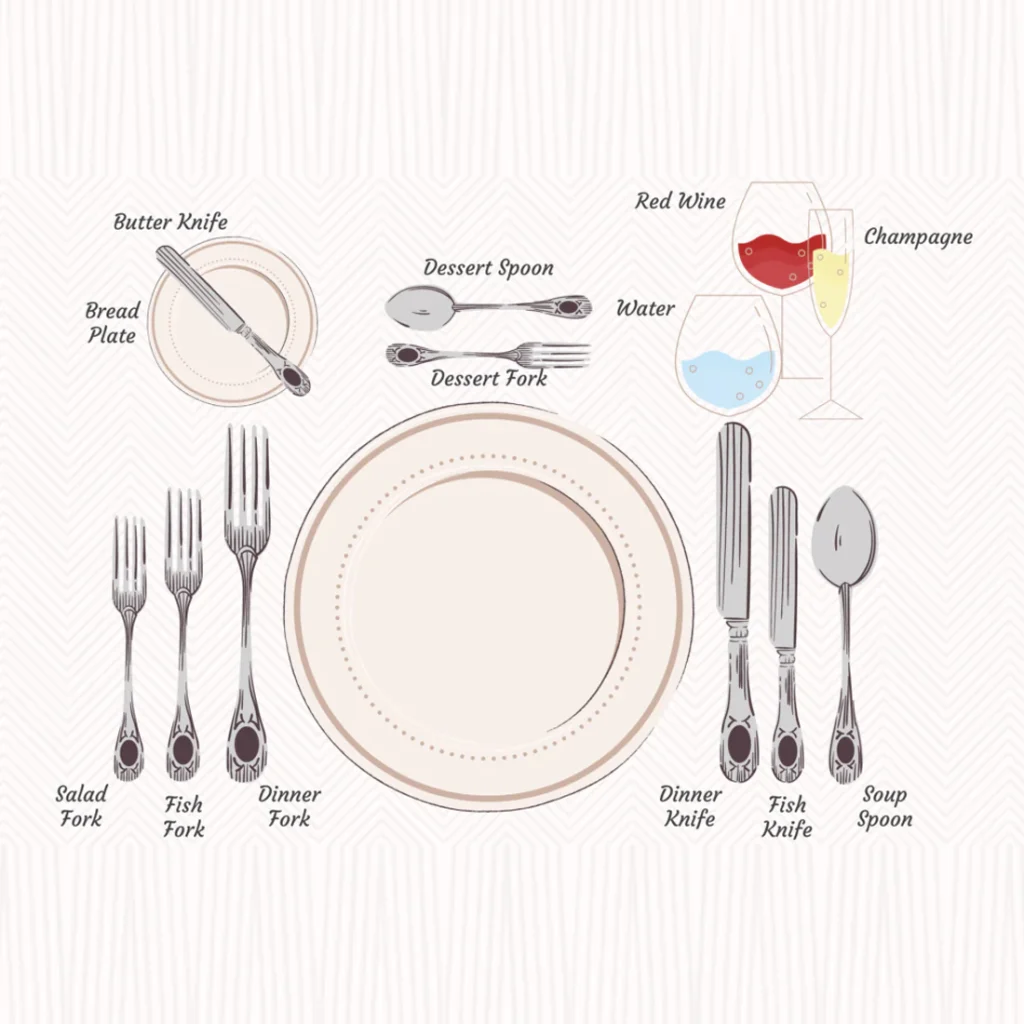In the grand tapestry of human history, we boast of pyramids and particle accelerators, of steam engines and smartphones. Yet, strip away the veneer of progress, and one truth emerges: the essence of civilized life has remained unchanged since our ancestors first gathered around fires. We wake, we work, we eat, we sleep—rituals bound by the same primal needs. The only innovation that genuinely transformed civilization, elevating it from barbarism to refinement, was the introduction of forks and knives to the table. Everything else? Mere embellishments on the same eternal human drama.
The Pre-Utensil Era: Fingers, Teeth, and Tribal Chaos
Picture the dawn of society. In ancient Mesopotamia, Egypt, or Rome, meals were visceral affairs. Bread served as a scoop, hands plunged into communal pots, and meat was torn apart with teeth or crude blades. The Greeks dined reclining, using spoons for liquids but relying on digits for solids. Romans, ever practical, employed knives for cutting but ate with fingers, wiping greasy hands on bread or slaves’ tunics. This was “civilization”? Hardly. It was organized savagery—efficient, yes, but devoid of grace.
Hygiene was a myth; diseases spread via shared grime. Social hierarchy manifested in who got the choicest cuts, grabbed first by the strongest hands. Etiquette? Laughable. Spitting bones onto the floor was standard. Even in medieval Europe, feasts at royal tables saw nobles hacking at roasts with personal daggers, then fingering morsels into mouths. The Last Supper itself, as depicted in art, shows apostles tearing bread with hands—no forks in sight. Civilization existed, but dining was a brawl disguised as communion.
The Fork Arrives: A Byzantine Spark Ignites Europe
Enter the fork, the unsung hero of refinement. Its origins trace to the Byzantine Empire around the 4th century AD, where it began as a two-pronged tool for stabilizing food while cutting. By the 11th century, a Byzantine princess introduced it to Venice upon marriage, scandalizing Italians who deemed it an affront to God’s design—fingers were divine gifts, after all. The Church condemned it as decadent; one monk raged that “God in his wisdom has provided man with natural forks—his fingers.”
Yet, persistence prevailed. By the 16th century, Catherine de’ Medici brought forks to France, and they spread northward. Knives, already ancient (dating to prehistoric times), evolved from weapons to table tools, their points rounded by the 17th century to prevent duels at dinner. In 1669, Louis XIV banned sharp knives at tables to curb violence—proving even royalty recognized the blade’s dual nature.
The tandem of fork and knife revolutionized the act of eating. No longer did one grapple with food like a beast. The knife sliced precisely; the fork speared and conveyed cleanly. Portions became individualized, hygiene improved (fewer hands in the pot), and manners emerged. Elbows off the table, chew with mouth closed—these weren’t inventions but necessities born of utensils that demanded control.
Why Nothing Else Matters: The Illusion of Progress
Since forks and knives graced tables—fully standardized in Europe by the 18th century and globally by the 19th—what has truly changed in civilization’s core?
- Technology? Chariots to cars, quills to keyboards—yet we still commute to labor, driven by the same survival imperative.
- Society? Tribes to nations, monarchies to democracies—power struggles persist, just with ballots instead of battles.
- Culture? Cave paintings to cinema—storytelling endures, masking the monotony of existence.
- Even Food? Hunter-gatherer scraps to gourmet fusion—still sustenance, now portioned neatly with… forks and knives.
The Industrial Revolution mechanized production, but dining remained hand-to-mouth in essence until utensils civilized it. Space travel? Impressive, but astronauts slurp rehydrated mush through tubes—regression! The internet connects billions, yet family dinners devolve into scrolling screens, forks idle.
Forks and knives imposed distance between man and meal, fostering contemplation over consumption. They birthed etiquette books (like Erasmus’s 1530 On Civility in Boys), dining rooms, and the very notion of “table manners” as a marker of class and culture. Without them, Michelin stars would be meaningless; we’d all be finger-licking cavemen in suits.
The Eternal Table: A Modest Proposal
Today, in our hyper-modern world, we dine with titanium forks and ceramic knives, but the act is identical to an 18th-century aristocrat’s. Civilization’s progress is a mirage; we’ve merely polished the surface. The fork and knife didn’t just change how we eat—they redefined humanity’s interface with the world, turning gluttony into gastronomy, chaos into courtesy.
So, next time you spear a steak or twirl pasta, ponder this: every “advance” since is footnotes. The real revolution was pronged and sharp. Everything else? Just gravy.
